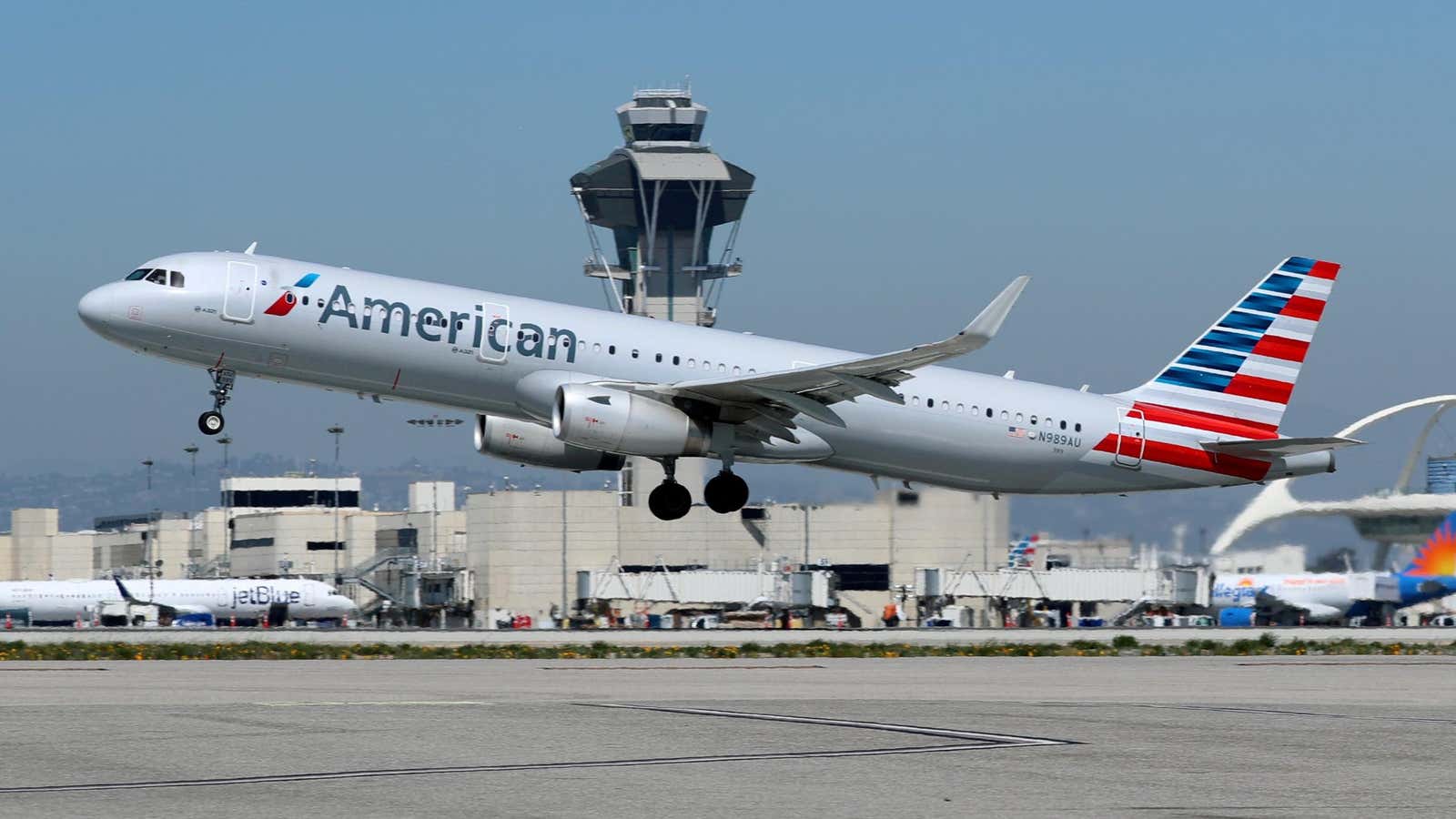The Biden administration wants air travelers to have complete transparency when booking flights.
The Department of Transportation will require air carriers and ticket agents to “clearly disclose” passenger-specific or itinerary-specific baggage fees, change fees, cancellation fees, and adjacent seating fees, according to a new proposed rule (pdf) published yesterday (Sept. 26). All fees “should be disclosed at the first point in a search process where a fare is listed.” The new rule will affect any flight to, within, and from the US.
The decision comes following a chaotic summer full of flight delays and cancellations sparking consumer complaints. Plus, the government recently warned airlines to stop charging extra to seat accompanying adults next to kids below the age of 13.
“Airline passengers deserve to know the full, true cost of their flights before they buy a ticket,” said US transportation secretary Pete Buttigieg. “This new proposed rule would require airlines to be transparent with customers about the fees they charge, which will help travelers make informed decisions and save money.”
Fighting airline consolidation
The Biden administration has also set its sight on another major factor influencing flight prices: consolidation within the industry.
In January 2021, the Trump administration approved an American Airlines and JetBlue alliance in the Northeast, which includes New York and Boston. Under Biden, the Justice Department and six states scrutinized the deal and sued to break up the partnership. The antitrust lawsuit begins today (Sept. 27).
What American and JetBlue say: The two companies share schedules to sell seats on each other’s flights, and split the revenue. But they don’t collude on prices. This alliance has helped them add 50 new routes, and add flights on previous routes.
What the government says: The not-a-merger is “an unprecedented maneuver to further consolidate the industry. It would result in higher fares, fewer choices, and lower quality service if allowed to continue.”
What experts say: Several smaller, scrappier airlines have been scooped up by giants in the past. The remaining biggies—particularly American, Delta, United, and Southwest—have gotten “too big to fail and too big to care,” Bill McGee, an aviation expert at the American Economic Liberties Project, which opposes concentrated power within industries, told ABC News. “We feel that there should be a moratorium on all mergers in the airline industry until (federal regulators) go back and look at all the negative effects of all the consolidation.”
By the digits
$5.3 billion: what large airlines made in baggage fees in 2021
$700 million: what large airlines made in cancellation and change fee revenue in 2021
$3.8 billion: the amount JetBlue is proposing to buy rival Spirit for, which has sent alarm bells ringing among authorities
Quotable
“Capitalism without competition isn’t capitalism. It’s exploitation. Without healthy competition, big players can change and charge whatever they want and treat you however they want.” —US president Joe Biden
Related stories
✈️ Why JetBlue is so desperate to buy Spirit
🌐 Delta is experimenting with flight information boards that know who you are and where you’re going
🗽 Air travel is back for tourists, but not for business travelers
